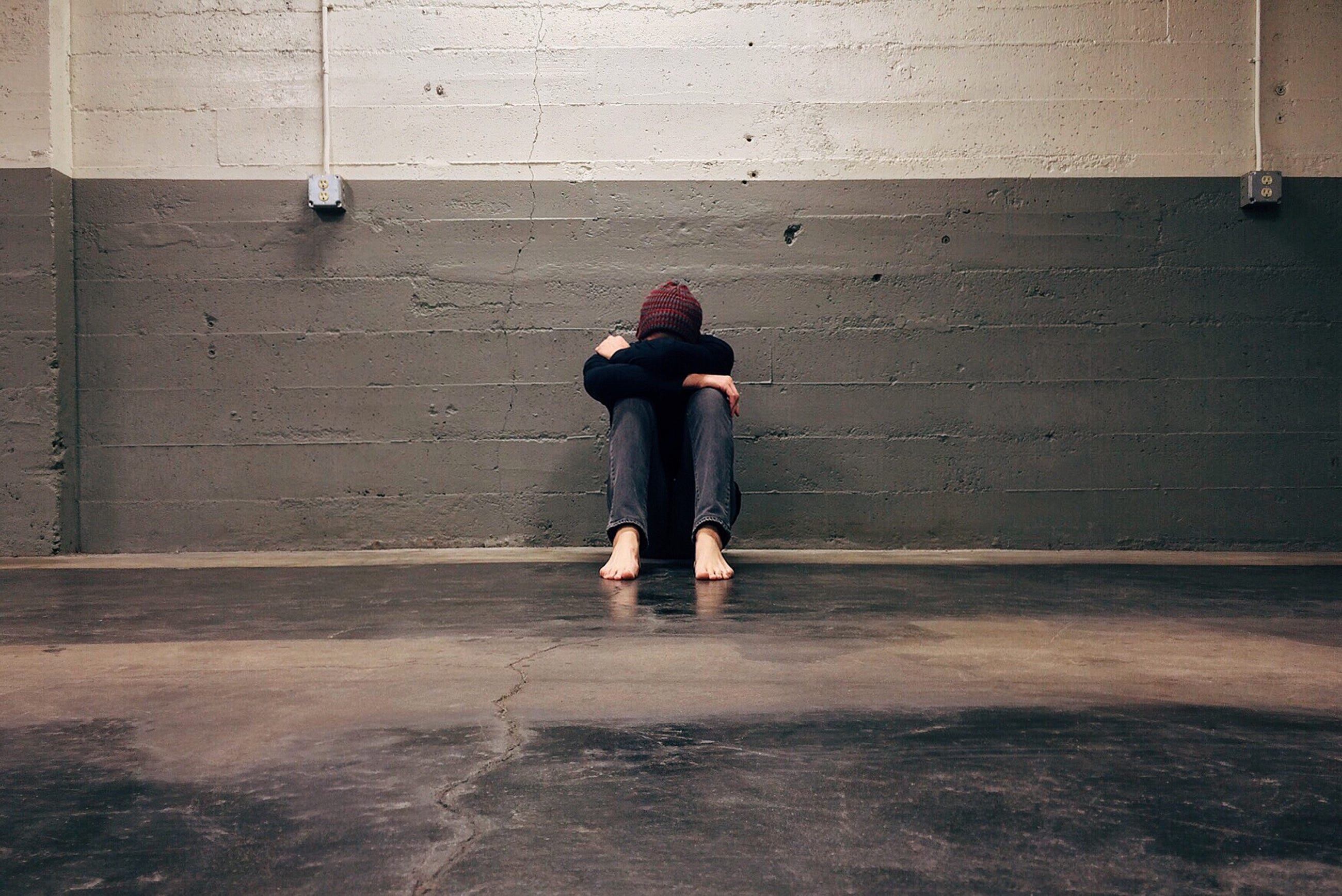Here’s how to know if you are dealing with a mental illness — if you think you are, you probably are.
There is a stark difference between an illness and an emotion, between anxiety and worry, between depression and sadness. One feels like it will kill you.
I’ve been living with anxiety for over three years. For the first two, I waited for it to go away on its own.
It didn’t.
Then I graduated and moved to a new city where I got my first job. I had a professional exam to take in three months. With so many things to occupy me, I was sure I would become a different person.
I didn’t.
New to the corporate environment and its politics, I failed at a lot of my work initially. I got bad reviews and one panic attack after another. I got sent home from work on many occasions because I looked ill. My manager asked me if I wanted to quit and move back home to “take care of my health”. Obviously, she thought I wasn’t up to the job.
Maybe I wasn’t. Far too many hours were spent hiding from colleagues because I couldn’t stop crying, couldn’t breathe, couldn’t stop my heart from hammering in my chest.
Things weren’t great at home either. With the work stress and managing household chores without my parents, I barely found the time to study. Staring at possibly the first exam I would fail, I started losing sleep and my appetite.
All my life I had been a sincere student; I worked hard to perform well.
Here I was, anxiety ravaging my life as I watched helplessly from the sidelines.

Then I found the courage to visit a therapist.
This is where my story moves upwards. Gradually, with weekly visits, I got better. Every penny I spent on my mental health has been worth it. I eventually got a promotion, settled in, forged some great relationships with the people around me.
Above all, I stopped being afraid of everything.
I realized that a lot of the advice and techniques that my therapist discussed with me were relevant to many people around me. Certain patterns of thinking make problems appear worse than they are.
Today I want to share them with you. I hope they make your battles easier too.
1. Something can be done about every problem.
The solution might be hard, but it’s still a solution.
Even if there is no solution, there is always a way to adapt to the situation. People who have lost limbs in accidents have said that life is not as bad as they had thought it would be.
2. Blanket statements are made by emotions. Don’t listen to them. Look for the details.
I would often go to my therapist with problems like “I don’t think I’m good enough for any job” or “I can’t seem to get along with anyone.”
Beware of such statements. They are cooked up by your mind to make everything seem a lot more difficult to tackle than it is. My therapist always inquired further-
Why do you think you’re not good enough for any job?
Because I crack under pressure. Everyone else is managing with their work just fine.
Who is everyone else?
You know, the people in my office.
Have all of them just moved cities?
No. Maybe three or four of them.
Have all of them just started working?
No, I’m the only fresh graduate.
This conversation helped me realize that my situation is unique and a general statement like “everyone except me is good enough for the job” did not do it justice. My problem stemmed from the fact that I was still adjusting to a new life; it wasn’t that I wouldn’t be good enough for my work.
Looking for details helps you identify the root of the problem and gives you a point to start dealing with it. So, always ask several follow-up questions to your own blanket statements to make sure they are not frauds.
3. Throw the phrase “should have” out of your dictionary.
This is advice for everyone. It really doesn’t matter what you should havedone, because you cannot change the past. The only thing this phrase does is load you with guilt and fantasies of things that could have been different if you had taken a different route.
It is easy to say what should have been done with the benefit of retrospect. However, any decision you took was because it seemed to be the best option at that time. Stop blaming yourself for taking it because you didn’t know any better then.
If you want to take a lesson from your mistake, say “The next time, I will…” instead of “I should have…”
4. Mental illnesses are as real as physical illnesses.
Nothing is “wrong” with you. Would you ask a pneumonia patient what is wrong with them? It’s a disease; it can happen to anyone at any time. Even if you haven’t had a very difficult life, you can have a mental illness. Stop forcing yourself to pretend everything is okay.
When I was unable to study for my exam, I would ask myself, “Why am I collapsing under pressure? People struggle a lot more and are still able to achieve what they want.”
My therapist asked me if I would expect myself to perform well in the exam with a broken wrist. Of course not, I replied.
If you wouldn’t pressurize yourself to pass the test with any other health issue, she said, don’t do it with this one. You need just as much care and time to recover.
5. The problem is not the symptoms. Don’t be afraid of them.
I used to think that crying uncontrollably, having heart palpitations and depersonalization episodes (where the whole world feels surreal as if I am in a movie) were the problems. I went to the therapist and described such situations that had arisen through the week.
She would always ask me to trace back to the moment the discomfort started. Maybe it was when my manager gave me a bad review. The problem, she explained, was that I panicked at that moment instead of discussing the review further.
She did not focus on how I spiralled afterwards, but instead on ways to prevent the panic from starting at all. When treating typhoid, doctors are more worried about battling the bacteria, not the fever or fatigue. Those are just signs that there is an illness.
So, the next time I had a derealisation episode, I just calmly continued with my day because I knew it would pass. The symptoms alone couldn’t harm me.
6. You can consciously choose healthy coping mechanisms.
There are two kinds of coping mechanisms. You can either solve the problem or make yourself feel better. A lot of destructive habits (drinking, smoking, self-harm, for example) begin as the latter. They don’t improve the situation, but they help to release pressure. The former helps in coming up with solutions (which is typically harder).
Say, you fight with your family over your spending habits. To resolve the issue, you can try to talk to your family members or try to reflect on how to cut down expenditure.
To blow off steam, you can get drunk and dance till you pass out. Alternatively, you can put on soothing music and go for a run. These will not help your problem, but they will help you cope.
We usually require a combination of both mechanisms to overcome a problem. It is important to accept the destructive desires as natural and not fear them.
However, you then know that you can choose to not cause yourself harm by opting for a problem-solving method instead. If you recognise that you are turning into a chain smoker under pressure, you can start thinking of alternatives ways the issue can be tackled.
7. Don’t forget to breathe.
Breathing helps you relax. It gives your brain slightly more time to think before reacting. It calms down your heart a little.

8. Talk to someone. Anyone.
You don’t have to do this alone. Call a friend, a relative, a neighbour, a colleague, your doctor or therapist, or even a stranger on the internet (there are websites like this one where you can chat with a stranger for free when things get overwhelming). Talk to someone whom you can trust will not judge you.
If you and your mental illness live alone in your head, it will appear fiercer than it is.
9. It gets better.
It really does. It might not completely go away, but you can stop it from dictating your life.
You are stronger than the demon in your head.


